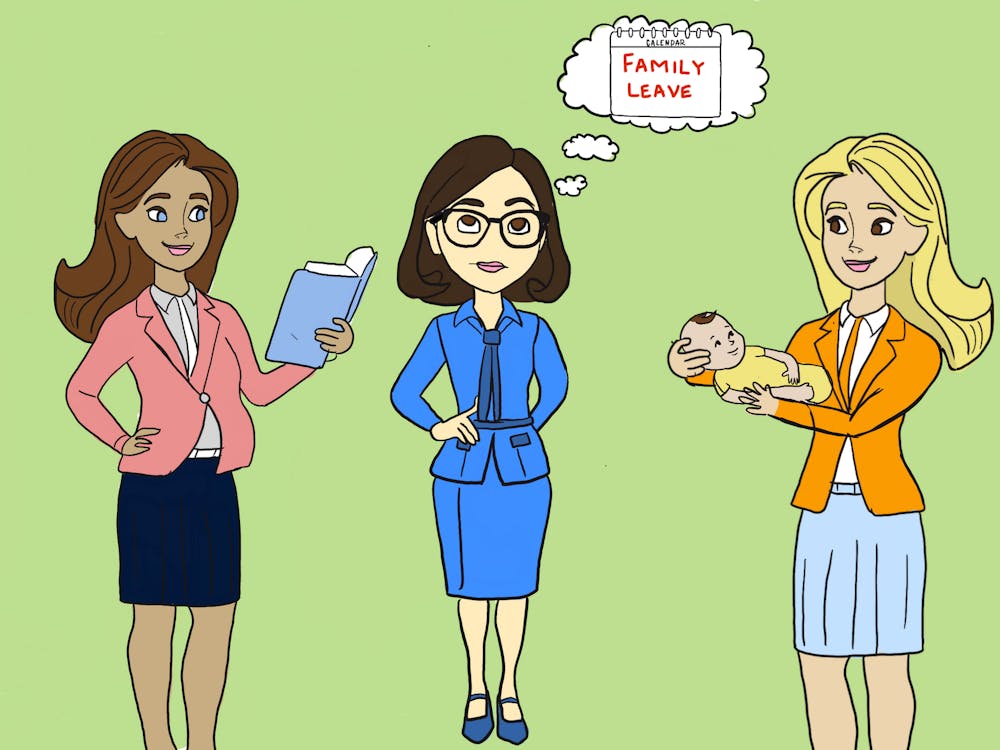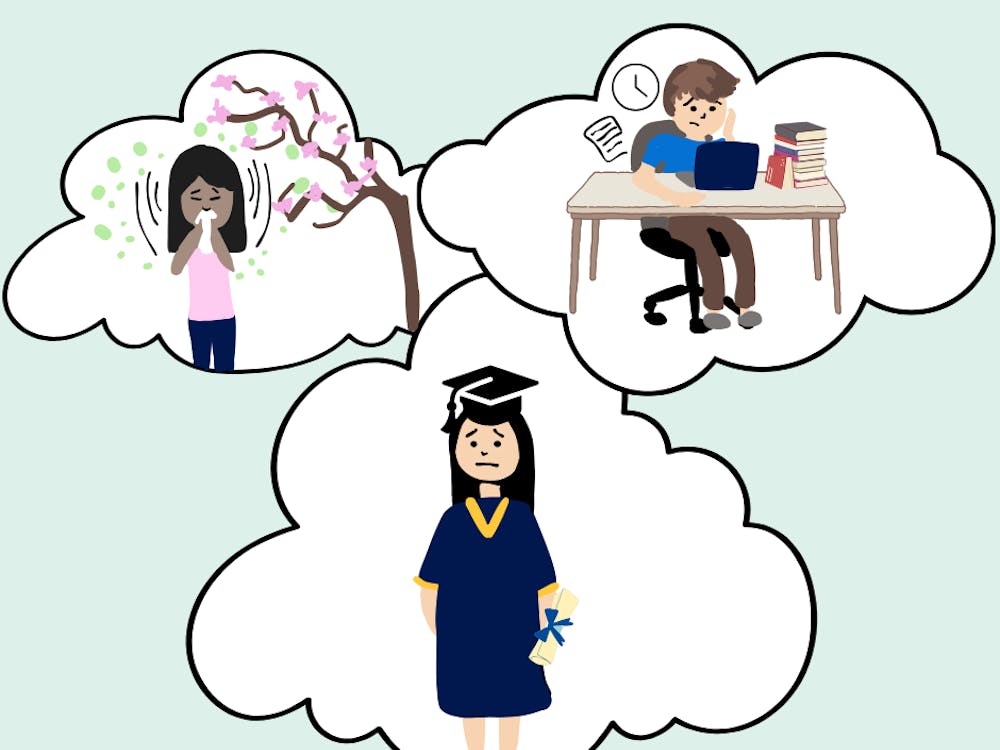It's registration time, and once again we encounter that oddly soothing - or agitating - voice, depending on what it has to say. If Mr. ISIS begins by saying, "The," you know the class you've selected is full. You know exactly how it goes: "The class you have selected, H-I-U-S-3-0...," and after a good 10 seconds of your timed phone call has passed, Mr. ISIS kindly informs you in a strangely suave voice that, as far as he is concerned, you're out of luck. So, whose voice is that anyway?
Theories abound, and some students even question his existence.
"I think he's just computer generated," fourth-year College student Behfar Ehdaie said.
While some students think he's fictional, the truth is, ISIS man may have fixed your computer or passed you in the hallway.
In fact, the ISIS man is George Payne. Payne, a former Wahoo, began his career at the University studying Electrical Engineering, but after his less-than-pleasant encounter with thermo-dynamics, he decided to transfer to the College. He graduated in 1979 with a degree in Speech/Mass Communications. He then headed into the real world of retail, wooing customers with his soothing voice. Later, he moved on to spot reporting for national radio stations. Payne believes he inherited his unique voice from his father.
Payne never underwent any formal voice training. "It's a gift, it's a talent, and mainly my daddy's doing, or maybe it's a deviated septum," Payne chuckled.
Returning to the radio business seemed fitting, given Payne's childhood in the radio industry. His parents managed several radio stations for Westinghouse. When Payne was five years old, his father took over as owner of a station in Virginia Beach and named it WNRN. His father then sold the station in 1986, at which time the call letters became available for the Charlottesville station, 91.9 WNRN.
Eight years after graduating, Payne found himself back in Charlottesville. His first wife was studying at the University for her Masters degree in nursing, so Payne started working at the University Registrar's Office. His past experience with computers in the Engineering School endowed him with the necessary skills. With a common sense attitude, it was not long before Payne convinced some of his colleagues that the old, inefficient way of registering through OASIS (ISIS's predecessor) had to go.
Payne explained the archaic OASIS registration process: If you had no registration blocks, you simply went to Onesty Hall and physically "transferred a card with your information from one end of the hall to the other to prove that you were there."
In 1990, ISIS was born. Now there are two PCs running the 64 phone lines that orchestrate the ISIS system. Payne reminisced that before the arrival of online registration in the fall of 1999, the computers' phone lines would "light up like a Christmas tree." So many people would call during registration that they would overwhelm the computer processors, slowing the ISIS voice down.
"It sounded like I was on drugs or something," he laughed.
It took about three hours to record everything for the ISIS man vocabulary we hear on the phone today. Payne mentioned that "cadence is everything" when recording. The only thing he does not like about the current recording is "when they do the numbers in ISIS, it just kills me. There's too much dead air between the numbers, and it's off by a half beat."
Now, of course, ISIS is available online. This has been a wonderful convenience for many who must call long distance in order to register for classes. For international students, however, a reliable Internet connection may not always be available.
Second-year College student Saket Naruoa, from New Delhi, India said the Indian Internet connections are "very slow and are always disconnected."
Instead, Naruoa had to make a phone call and, "at $3 a minute, it was expensive as hell," he said. Because of the international time difference, he had to call from India around 3 a.m. to reach ISIS during its normal business hours. Given other people's stories of the infamous busy signal, Naruoa considered himself lucky for only having to attempt the call "four or five times."
Naruoa does not mind hearing the ISIS man's voice, though. He just finds that "it gets annoying if you're calling from an international country."
On the other hand, some students would rather hear more variety in the recordings.
"I'd like to hear a sexy Scandinavian woman," said second-year College student Vic Iskounen. Naruoa seconded that.
Sexy or not, with such a distinct voice it is hard to not notice Payne. His niece attended the University, and her hall-mates immediately recognized Payne as the ISIS man by his voice. However, when she enrolled in a class that her hallmates couldn't get into, they suspected Payne of covertly giving her access to the course.
"If you don't get the class you want, it's not my fault," he rebutted with a grin. "Some people will either really hate me or really like me," Payne said.
Payne typically used a more inflected voice for the radio, but sometimes the ISIS in him just slips out in regular conversation. When making an ITC house call to fix a computer, students often place his voice. "Most times they can't believe it," and then they call their friends over to have a listen, he explained. Frequently, they will also have him record a voice mail greeting, but he never charges.
"I have fun with my voice, but I'm not out to make money with it," Payne said.
Payne has done other voice work for Folger's Coffee, Richard Kline Chevrolet and NBC News, but you can always find him here at the University. He plans on staying with ITC as the manager of the Help Desk in Wilson Hall.
"Computers are much more lucrative than the radio business," he found. "The Help Desk is like radio, because of the hectic, flying by your seat," he elaborated. At 250 calls a day, ITC is far from calm.
While ITC currently takes up most of his time, Payne occasionally has to re-record information for the ISIS system. It looks as though the online ISIS is not going to fade the telephone version out anytime soon, especially when the telephone is still many people's preference for registration. Even Payne likes to call occasionally and hear how the ISIS man is doing.






